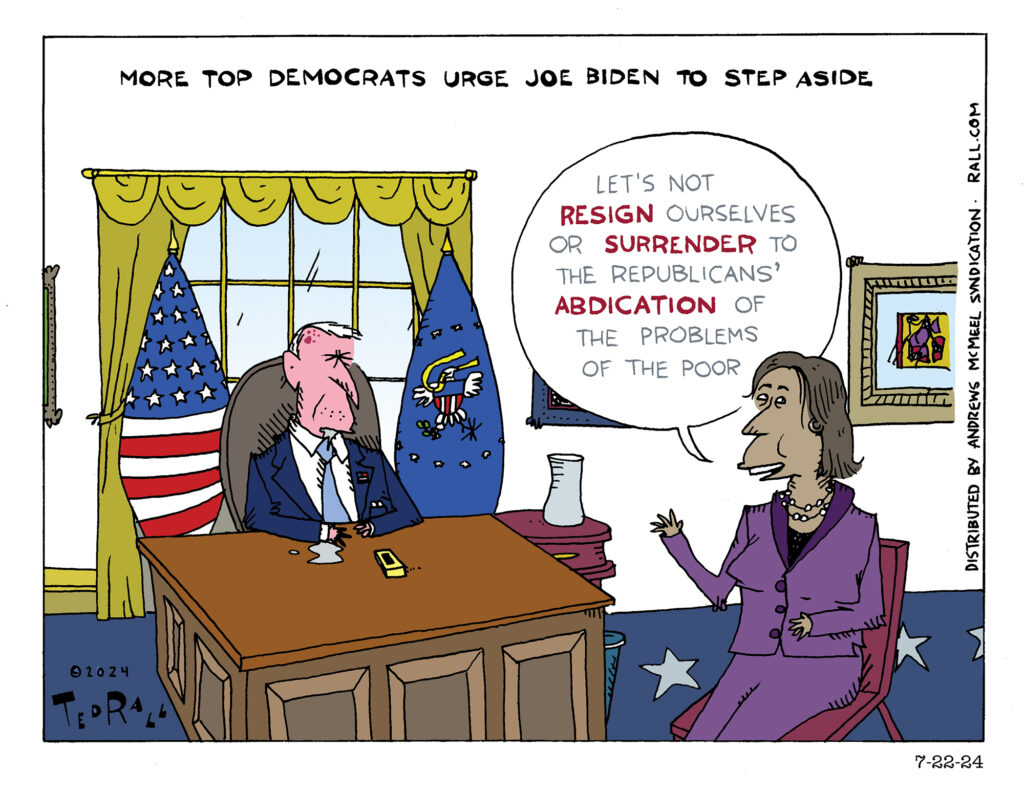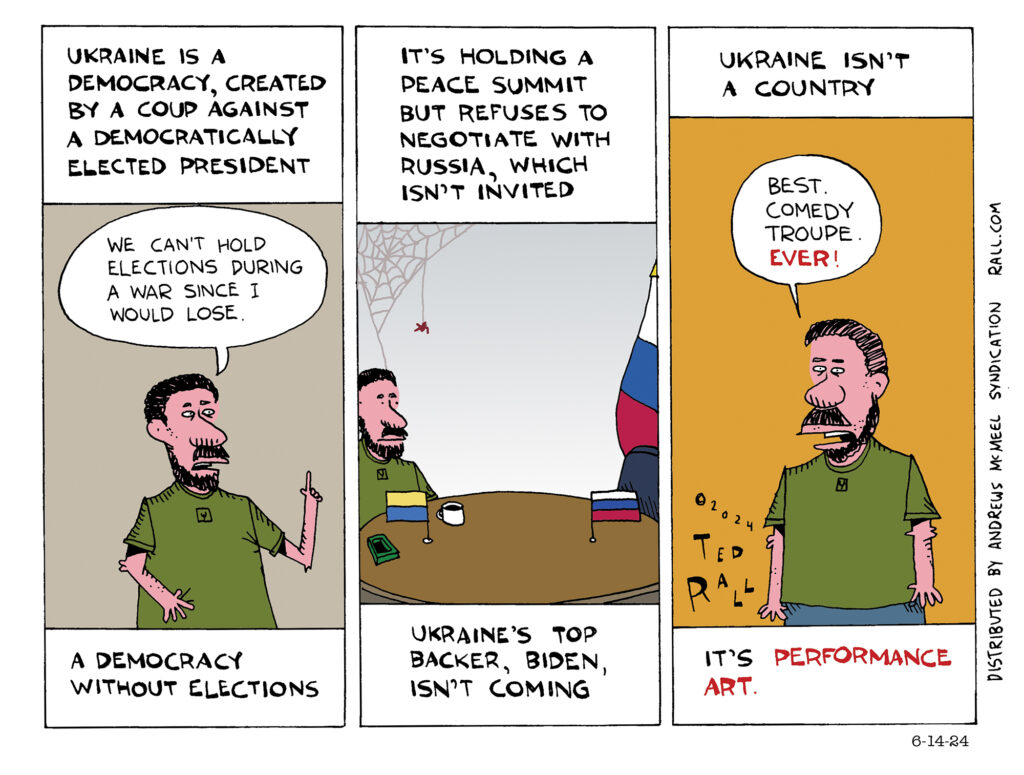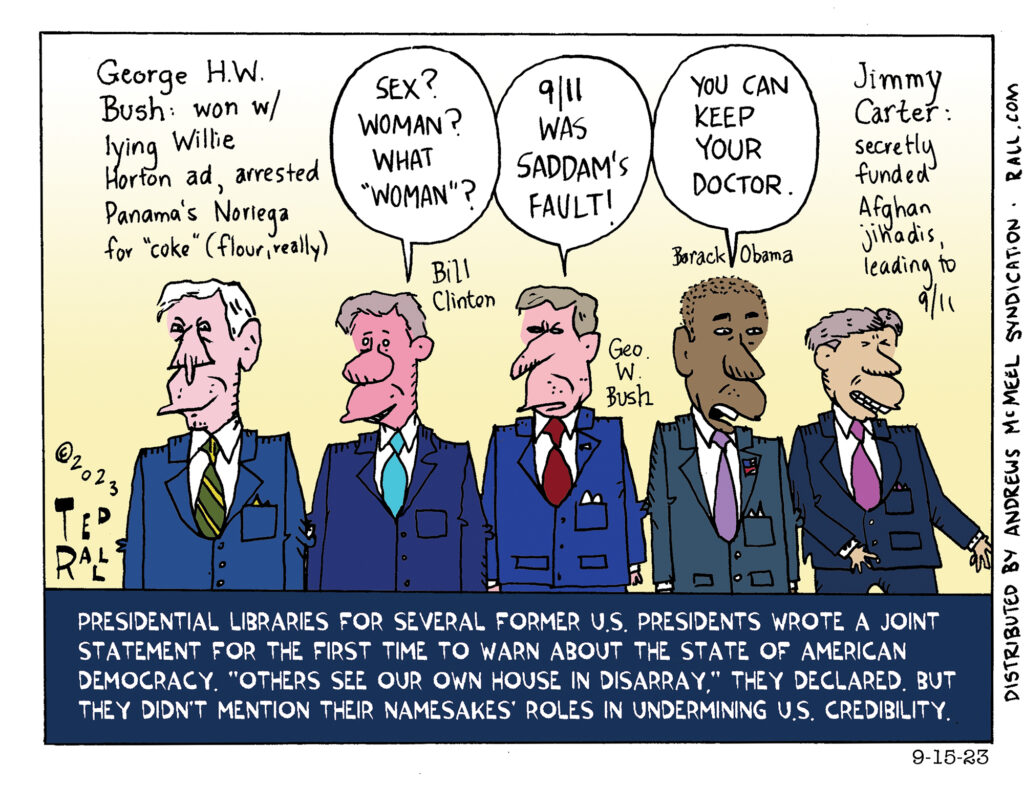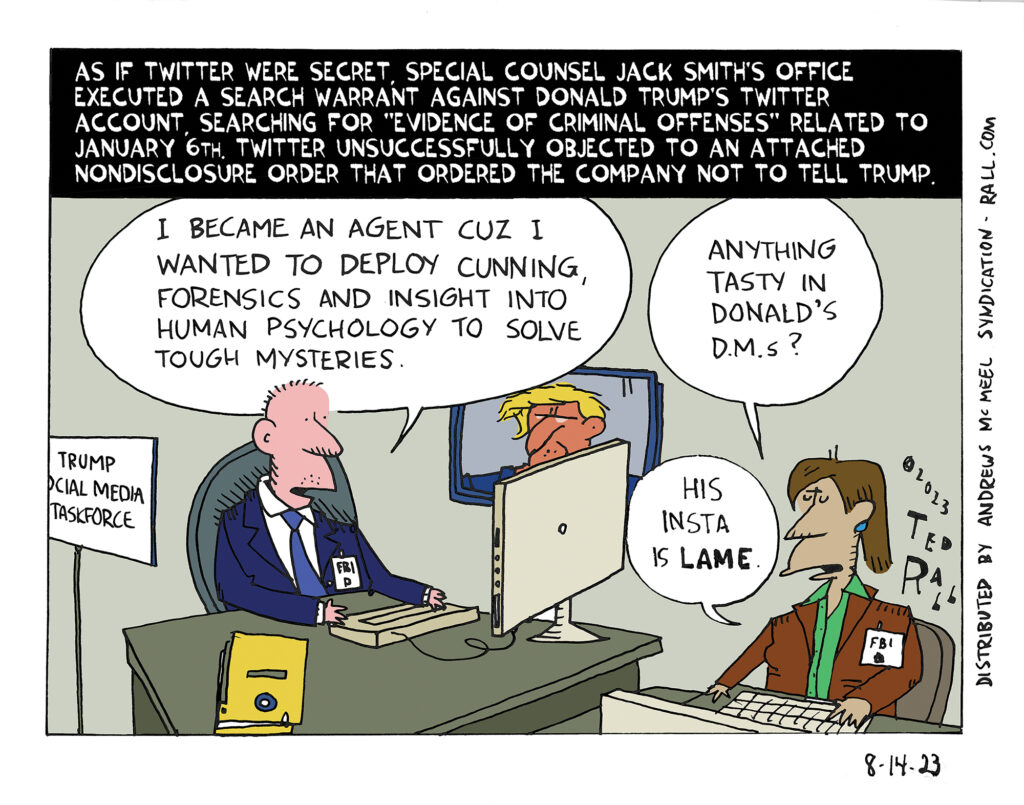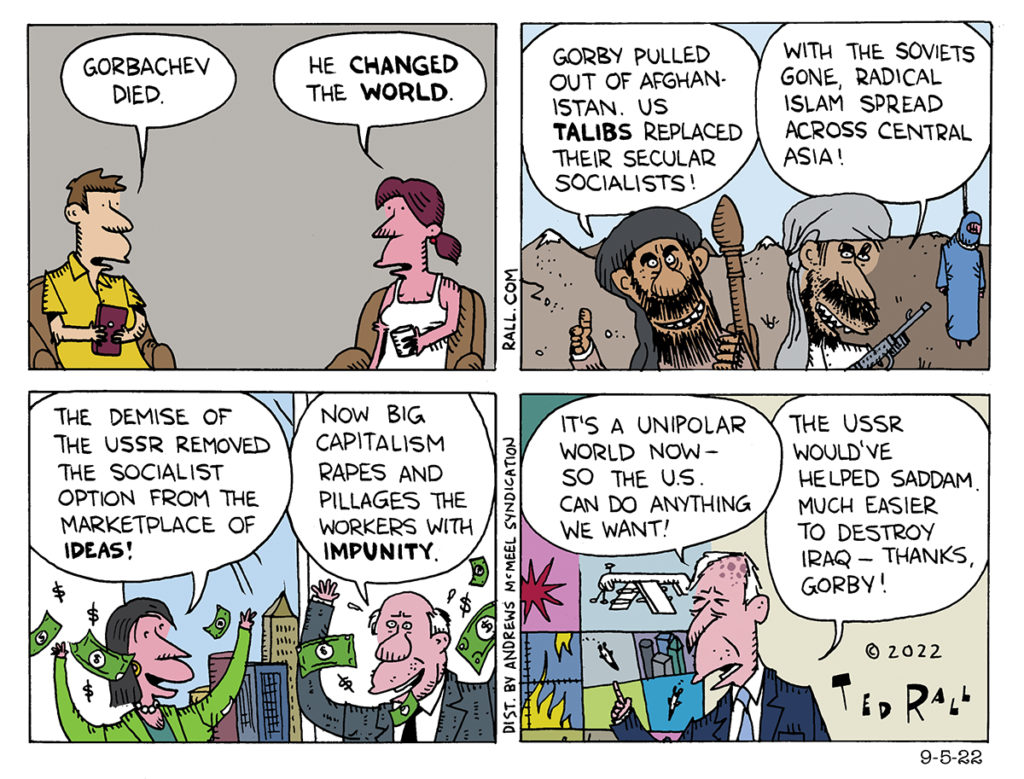 Democrats centered Kamala Harris’ election campaign around the threat to American democracy posed by Donald Trump’s possible return to the presidency. The issue may not weigh on voters’ minds as heavily as the economy, but it does resonate; polls show that Americans trust Harris more to counter political extremism and preserve democracy.
Democrats centered Kamala Harris’ election campaign around the threat to American democracy posed by Donald Trump’s possible return to the presidency. The issue may not weigh on voters’ minds as heavily as the economy, but it does resonate; polls show that Americans trust Harris more to counter political extremism and preserve democracy.
When it comes to democracy, is there much difference between the two candidates? Not as far as I can see.
Yeah, Trump spews authoritarian rhetoric. “CBS should lose its license,” Trump wrote on Truth Social platform last week. “60 Minutes should be immediately taken off the air.” “We have some sick people, radical-left lunatics,” Trump said recently. “And it should be very easily handled by, if necessary, by [the] National Guard or, if really necessary, by the military, because they can’t let that happen.” Democratic vice presidential candidate Tim Walz called Trump’s comments “dangerous” and “un-American,” and of course he’s right.
But the Biden-Harris Administration is just as bad. In fact, they have already engaged in the kind of vicious censorship and suppression typically deployed by the world’s most repressive and dictatorial regimes—actions that go beyond anything Trump did or threatens to do.
The president is fascist. I know, because I’m a victim of one of his fascist actions.
On October 15 Sputnik News, where I co-hosted a radio talk show and for whom I had drawn political cartoons, was shut down. This media closure had nothing to do with market forces or funding problems. With the stroke of his pen, Herr Biden issued a set of legal and financial sanctions crafted to force the network off the air. Several dozen American journalists, consummate professionals at least as talented as many of their peers at “mainstream” outlets, are out of work. As leftists, we had been grateful to land jobs with a Russian-based company.
No American newspaper, magazine or broadcast network will consider hiring anyone among the 40% of Americans who fall to the left of the Democratic Party.
The First Amendment is supposed to protect everyone, including foreign media organizations like Sputnik, the BBC and CBC, from direct government censorship. Because the White House has frozen its bank accounts, however, Sputnik can’t hire a lawyer to fight in court.
The Administration and its media mouthpieces said that Sputnik spread propaganda. But U.S. law does not ban propaganda. Which is good, because who could define it? For my part, I have never been less censored or edited as a cartoonist or radio talker than when I was at Sputnik. And I’ve worked for scores of mainstream liberal and centrist publications and broadcast outlets.
No one, including the U.S. government, accused Sputnik of breaking American law or failing to comply with regulations. The brief against Sputnik boiled down to: Sputnik is Russian, Russia is at war with Ukraine, the U.S. supports Ukraine, Sputnik must die.
Government censorship of the news media is typically carried out by proxy. The LAPD pension fund bought controlling interest in The Los Angeles Times and ordered them to fire me as their cartoonist. Al Jazeera America, the Qatar-based news channel, was shuttered in 2016 in part because President George W. Bush had pressured major cable distributors not to carry it. Because the entities involved were private, the First Amendment didn’t apply. Trump and Biden’s persecution of Julian Assange relied on the fiction that Wikileaks was not a news media publisher.
The Democrats’ attack on Sputnik is radical and terrifying. Acting alone, the President—neither a regulatory agency like the FCC nor Congress acting as elected representatives of the voters—has shut down a news network.
Sputnik was Russian. You might not like anything it broadcast or published. (Though the few people who found it were pleasantly surprised at how little discussion there was about Russia and Ukraine, how it aired intelligent voices censored by corporate media and that it covered a lot of international news you couldn’t find elsewhere. It was by far the most prominent outlet for the real, actual, non-Democrat, U.S. Left. You can still listen to some of my old shows.)
If President Biden can close Sputnik, he can shut down CNN and The New York Times.
Censors’ first targets are always the softest targets: small, unpopular, demonized, fringe. Uptight prigs in Reagan-era America went after pornographers and edgy musicians. Politically-correct college students shout down right-wing speakers. Pro-Palestinian protesters are smeared as anti-Semites.
As Thomas Jefferson wrote in 1789, democracy cannot function without a well-informed electorate. For nearly a quarter of a millennium, Americans have preferred to have access to a wide spectrum of opinions. Whenever politicians, clerics or academics have suggested that unpopular and “extreme” ideas should be censored and that popular discourse would improve by being curated, censorship has ultimately been rejected in favor of free speech. In 2022, for example, a proposal by President Biden’s Department of Homeland Security to create a Disinformation Governance Board to combat misinformation and disinformation, headed by a woman who had previously claimed Hunter Biden’s laptop was “a Trump campaign product” faked by Russia, was shot down in a rare moment of Congressional bipartisanship.
Yesterday’s conspiracy theories—Hunter’s laptop, the Wuhan lab theory, negative side effects of Covid vaccines—become today’s truths. So our cultural consensus remains: Don’t censor bad/false/disagreeable/offensive speech. Respond to it. Truth will usually out.
After the European Union banned and blocked Sputnik in response to the 2022 Russian invasion of Ukraine, European Federation of Journalists General Secretary Ricardo Gutiérrez remarked: “This act of censorship can have a totally counterproductive effect on the citizens who follow the banned media.”
I’ve been thinking about Gutiérrez’s statement. Who wins and who loses as the result of Biden’s dictatorial move?
The main victims are the American citizens who followed Sputnik. They will not thank the government. They will think that all that government rhetoric about democracy and free speech is empty talk—propaganda. They’ll trust the government and corporate media less than ever.
Ex-Sputnik employees, a brave and talented group, are likely to survive and even thrive—and be even less willing to believe the government when it claims to have Americans’ best interests in mind.
As my show went off the air for the last time at noon, I waited to hear the music signaling the beginning of the next program, “Political Misfits,” with Michelle Witte and John Kiriakou. Instead, there was dead air.
The irony was rich. Kiriakou, a CIA whistleblower, spent nearly two years in federal prison for the “crime” of exposing the agency’s torture program. Once again, the government was trying to shut him up.
Biden and his fellow fascists—including Vice President Kamala Harris, whose silence here speaks as loudly as her tacit support for Israel’s wars against Gaza and Lebanon—are the big winners. Shutting down Sputnik sends a chilling message to any reporter or commentator who dares to oppose official narratives. We can and will keep you quiet, First Amendment be damned.

